Memory
How to submit an article:
- Registered users can submit any published journal article that has a unique DOI (Digital Object Identifier) name or link to Research Hub.
- For example, you can paste the full DOI link:
https://doi.org/10.1109/5.771073or just the DOI name:10.1109/5.771073into the field above and click submit. - The person who is first to submit a valid article to Research Hub will forever be credited for it, and every article submission earns you +6 Research Points.
Related Topics
Published research studies are articles that present the findings of original research that has undergone a peer-review process and has been made publicly available in scholarly journals, books or other media.

Combination of Walnut Peptide and Casein Peptide alleviates anxiety and improves memory in anxiety mices
2023 Oct 06 Frontiers in Nutrition Li Q, Jia X, Zhong Q, Zhong Z, Wang Y, Tang C, et al.
Experimental Study Animal Study Memory Anxiety WalnutA combination of Walnut Peptide and Casein Peptide substantially alleviates anxiety disorder symptoms and enhances memory by improving neurotransmitter function in mice.

Effectiveness of Fish Roe, Snow Fungus, and Yeast Supplementation for Cognitive Function: A Randomized, Double-Blind, Placebo-Controlled Clinical Trial
2023 Sep 29 Nutrients Lin YK, Lin YH, Chiang CF, Jingling L
Randomised Controlled Trial Anxiety Fatigue Yeast Fish Roe Snow Fungus Cognitive FunctionA beverage formula containing fish roe, snow fungus, and yeast enhances cognitive function by improving memory, response times, and emotional recognition, while reducing anxiety and fatigue.

An analysis of the nutritional effects of Schisandra chinensis components based on mass spectrometry technology
2023 Jul 25 Frontiers in Nutrition Jia M, Zhou L, Lou Y, Yang X, Zhao H, Ouyang X, et al.
The review highlights the potential nutritional effects of S. chinensis, including its role in enhancing immunity, acting as an antioxidant, anti-allergen, antidepressant, and anti-anxiety agent, as well as its ability to improve memory, cognitive function, and metabolic imbalances. Advanced mass spectrometry detection technologies have the potential to discover new nutritional components and verify the effects of different extraction methods. This review provides guidelines for further research on the nutritional value of S. chinensis and the development of healthy food products.
Review Article Wu Wei Zi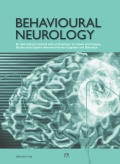
Cucurbita maxima Seeds Reduce Anxiety and Depression and Improve Memory
2023 Mar 22 Behavioural Neurology Wahid S, Alqahtani A, Khan RA
Animal Study Anxiety Depression Memory Pumpkin SeedPumpkin seeds have been shown to provide neuropharmacological benefits such as reducing anxiety and depression, and improving memory.
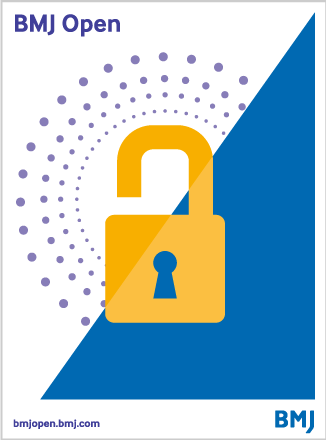
Association between healthy lifestyle and memory decline in older adults: 10 year, population based, prospective cohort study
2023 Jan 25 BMJ Open Jia J, Zhao T, Liu Z, Liang Y, Li F, Li Y, et al.
A healthy lifestyle is associated with slower memory decline, even in the presence of the APOE ε4 allele. This study might offer important information to protect older adults against memory decline.
Cohort Study Memory Healthy LifestyleResearch insights are moderated by the Research Hub team and offer an at-a-glance overview of interesting research findings.

2023 Frontiers in Nutrition
A combination of Walnut Peptide and Casein Peptide substantially alleviates anxiety disorder symptoms and enhances memory by improving neurotransmitter function in mice.
Experimental Study Anxiety Walnut
Combination of Walnut Peptide and Casein Peptide alleviates anxiety and improves memory in anxiety mices
Li Q, Jia X, Zhong Q, Zhong Z, Wang Y, Tang C, et al.

2023 Nutrients
A beverage formula containing fish roe, snow fungus, and yeast enhances cognitive function by improving memory, response times, and emotional recognition, while reducing anxiety and fatigue.
Randomised Controlled Trial Anxiety Cognitive Function Fatigue Fish Roe Snow Fungus
Effectiveness of Fish Roe, Snow Fungus, and Yeast Supplementation for Cognitive Function: A Randomized, Double-Blind, Placebo-Controlled Clinical Trial
Lin YK, Lin YH, Chiang CF, Jingling L

2023 Behavioural Neurology
Pumpkin seeds have been shown to provide neuropharmacological benefits such as reducing anxiety and depression, and improving memory.
Animal Study Anxiety Depression Pumpkin Seed
Cucurbita maxima Seeds Reduce Anxiety and Depression and Improve Memory
Wahid S, Alqahtani A, Khan RA
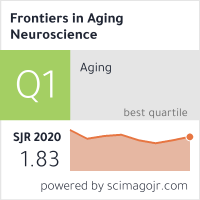
2023 Frontiers in Aging Neuroscience
Honey exhibits multifaceted benefits for brain health, acting as a memory booster, neuroprotective agent, anti-stress, and anti-nociceptive substance, fostering potential therapeutic applications to enhance overall cognitive well-being.
Review Article Brain Health Cognitive Function Honey Neuroprotective
Honey on brain health: A promising brain booster
Zamri NA, Ghani N, Ismail CAN, Zakaria R, Shafin N

2022 Nutrients
Walnuts, rich in anti-inflammatory ingredients, potentially regulate neuroinflammation, improve cognitive function, reduce oxidative stress, and maintain gut health, thereby suggesting their use against neurodegenerative diseases.
Review Article Anti-Inflammatory Cognitive Function Neurodegenerative Diseases Walnut
Recent Studies on Protective Effects of Walnuts against Neuroinflammation
Tan B, Wang Y, Zhang X, Sun X
Review Articles
Review articles summarise and critically evaluate the current state of research on a specific topic or field by synthesising multiple primary research studies.

An analysis of the nutritional effects of Schisandra chinensis components based on mass spectrometry technology
2023 Jul 25 Frontiers in Nutrition Jia M, Zhou L, Lou Y, Yang X, Zhao H, Ouyang X, et al.
The review highlights the potential nutritional effects of S. chinensis, including its role in enhancing immunity, acting as an antioxidant, anti-allergen, antidepressant, and anti-anxiety agent, as well as its ability to improve memory, cognitive function, and metabolic imbalances. Advanced mass spectrometry detection technologies have the potential to discover new nutritional components and verify the effects of different extraction methods. This review provides guidelines for further research on the nutritional value of S. chinensis and the development of healthy food products.
Review Article Wu Wei Zi
Honey on brain health: A promising brain booster
2023 Jan 17 Frontiers in Aging Neuroscience Zamri NA, Ghani N, Ismail CAN, Zakaria R, Shafin N
Review Article Honey Cognitive Function Memory Neuroprotective Brain HealthHoney exhibits multifaceted benefits for brain health, acting as a memory booster, neuroprotective agent, anti-stress, and anti-nociceptive substance, fostering potential therapeutic applications to enhance overall cognitive well-being.

Recent Studies on Protective Effects of Walnuts against Neuroinflammation
2022 Oct 18 Nutrients Tan B, Wang Y, Zhang X, Sun X
Review Article Cognitive Function Neurodegenerative Diseases Anti-Inflammatory WalnutWalnuts, rich in anti-inflammatory ingredients, potentially regulate neuroinflammation, improve cognitive function, reduce oxidative stress, and maintain gut health, thereby suggesting their use against neurodegenerative diseases.
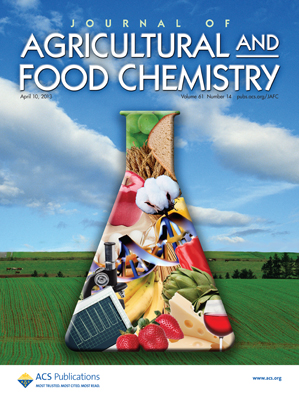
Wild Jujube (Ziziphus jujuba var. spinosa): A Review of Its Phytonutrients, Health Benefits, Metabolism, and Applications
2022 Jun 22 Journal of Agricultural and Food Chemistry Hua Y, Xu X, Guo S, Xie H, Yan H, Ma X, et al.
Review Article Jujube Anti-Inflammatory Antioxidant Cognitive FunctionJujube nutrients may offer potential therapeutic benefits including antioxidant, antibacterial, anti-inflammatory functions, and improving sleep quality and learning.
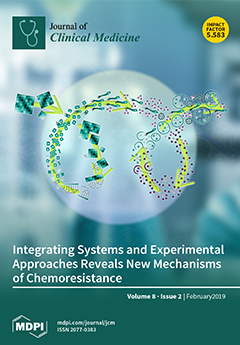
Efficacy and Underlying Mechanism of Acupuncture in the Treatment of Posttraumatic Stress Disorder: A Systematic Review of Animal Studies
2021 Apr 08 Journal of Clinical Medicine Kwon CY, Lee B, Kim SH
In behavioral evaluation, acupuncture, including MA and EA, reduced anxiety and fear responses and weakened fear conditioning, improved sleep architecture, reduced depressive symptoms, and alleviated the disturbance of spatial learning and memory of the PTSD animal models.
Systematic Review PTSD AcupunctureClinical Trials
Clinical trials are research studies that involve people and are conducted to evaluate the safety and efficacy of new treatments or interventions, such as drugs, medical devices, or behavioural therapies.

Effectiveness of Fish Roe, Snow Fungus, and Yeast Supplementation for Cognitive Function: A Randomized, Double-Blind, Placebo-Controlled Clinical Trial
2023 Sep 29 Nutrients Lin YK, Lin YH, Chiang CF, Jingling L
Randomised Controlled Trial Anxiety Fatigue Yeast Fish Roe Snow Fungus Cognitive FunctionA beverage formula containing fish roe, snow fungus, and yeast enhances cognitive function by improving memory, response times, and emotional recognition, while reducing anxiety and fatigue.
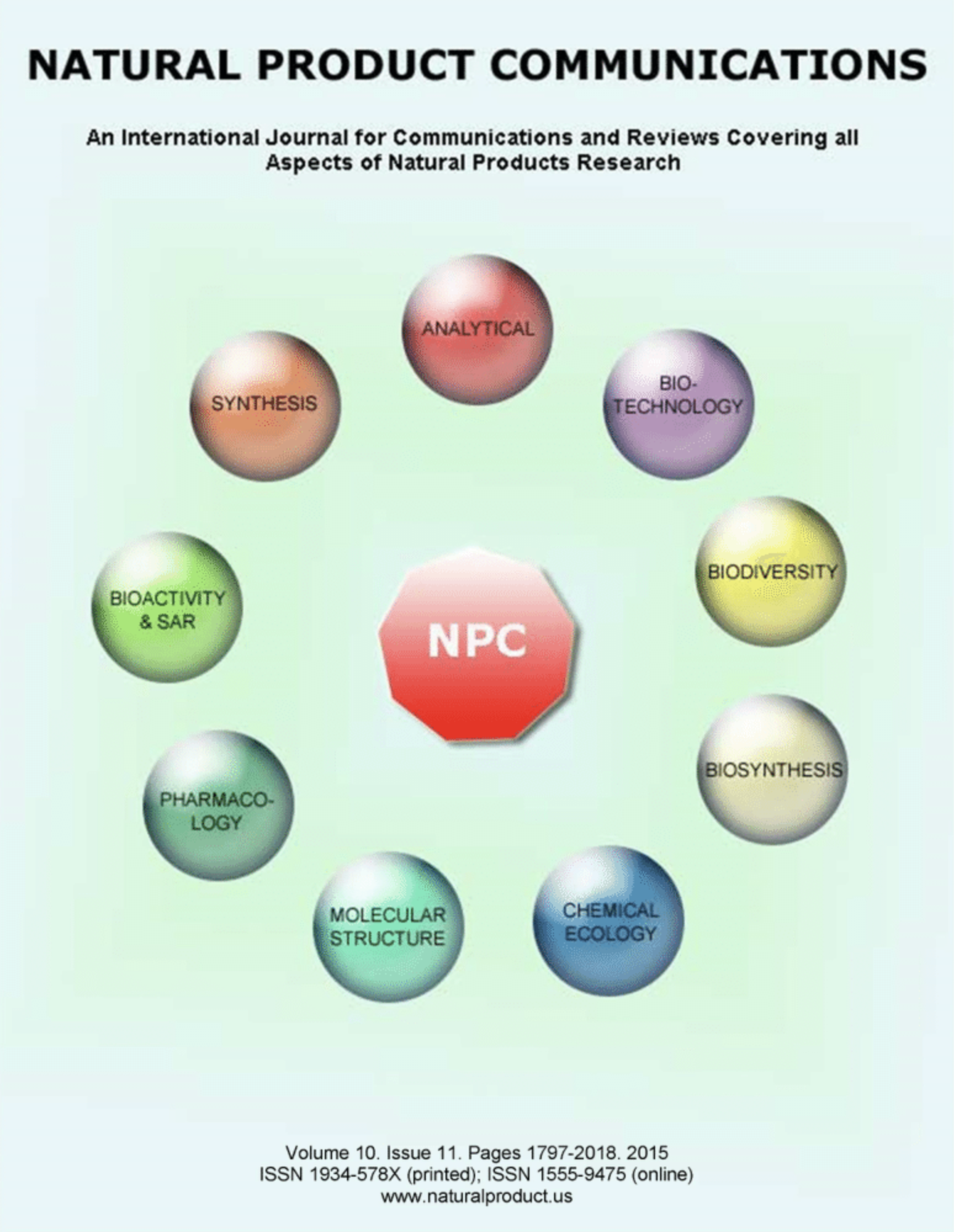
Walnut (Juglans regia L.) Oligopeptide Effects on Enhancing Memory, Cognition and Improving Sleep Quality in Teenagers and Elderly People in a Randomized Double-Blind Controlled Trial
2022 Mar Natural Product Communications Yeh AL, Chao CL, Huang WF, Lin HC, Wang CJ
Randomised Controlled Trial Sleep Cognitive Function WalnutWalnut oligopeptide improves cognitive performance and sleep quality among teenagers and elderly people.
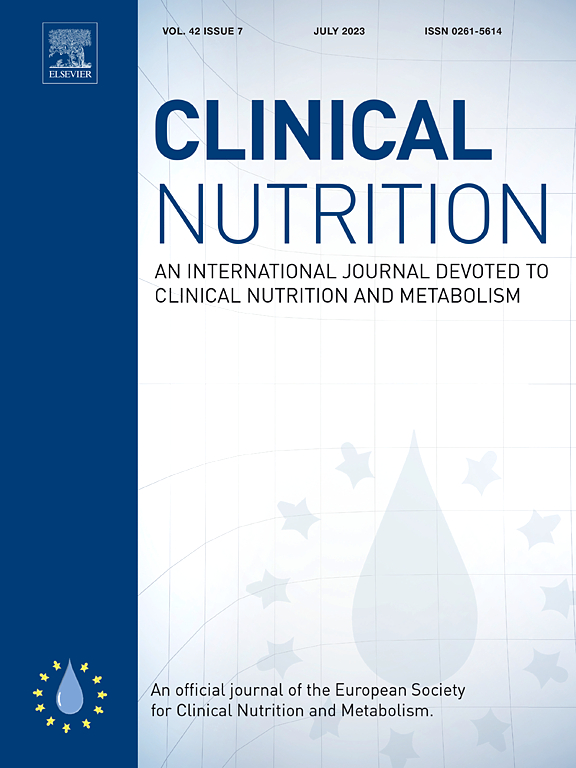
Consumption of peanut products improves memory and stress response in healthy adults from the ARISTOTLE study: A 6-month randomized controlled trial
2021 Nov Clinical Nutrition Parilli-Moser I, Domínguez-López I, Trius-Soler M, Castellví M, Bosch B, Castro-Barquero S, et al.
Regular peanut and peanut butter consumption may enhance memory function and stress response in a healthy young population.
Randomised Controlled Trial Stress Peanut Cognitive Function Peanut Butter
Effect of Daily Intake of Green Tea Catechins on Cognitive Function in Middle-Aged and Older Subjects: A Randomized, Placebo-Controlled Study
2020 Sep 17 Molecules Baba Y, Inagaki S, Nakagawa S, Kaneko T, Kobayashi M, Takihara T
Randomised Controlled Trial Green Tea Catechin Green Tea Cognitive Function MemoryDaily consumption of decaffeinated green tea catechins may enhance working memory.
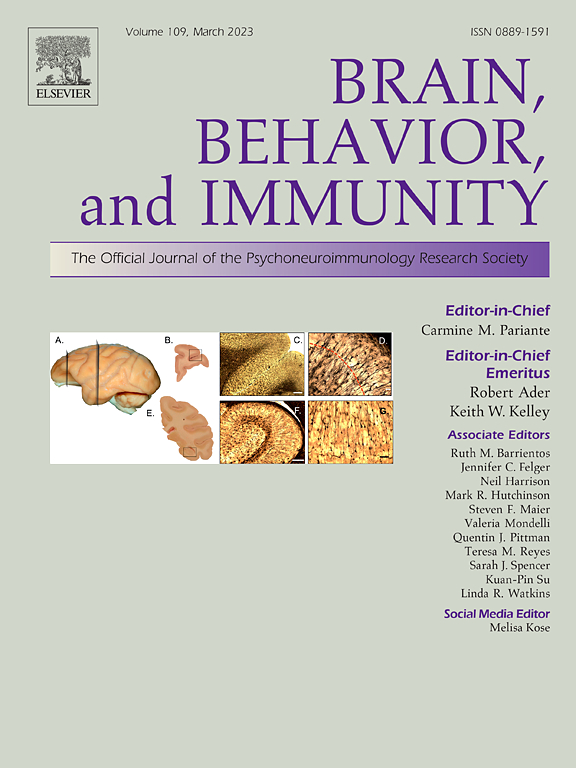
Electroacupuncture trigeminal nerve stimulation plus body acupuncture for chemotherapy-induced cognitive impairment in breast cancer patients: An assessor-participant blinded, randomized controlled trial
2020 Aug Brain, Behavior, and Immunity Zhang ZJ, Man SC, Yam LL, Yiu CY, Leung RCY, Qin ZS, et al.
Results suggest that EA/TNS + BA may have particular benefits in reducing chemotherapy-induced working memory impairment and the incidence of certain digestive, neurological, and distress-related symptoms. It could serve as an effective intervention for breast cancer patients under and post chemotherapy
Randomised Controlled Trial Cognitive Function Acupuncture Breast Cancer ChemotherapyStudy Protocols
Published study protocols are detailed plans that outline the objectives, methodology, statistical analyses, and organisation of a research study that have been made publicly available for others to review and use as a reference.
Presentation Slides

Experimental Study
A combination of Walnut Peptide and Casein Peptide substantially alleviates anxiety disorder symptoms and enhances memory by improving neurotransmitter function in mice.
Li Q, Jia X, Zhong Q, Zhong Z, Wang Y, Tang C, Zhao B, Feng H, Hao J, Zhao Z, He J, Zhang Y

Randomised Controlled Trial
A beverage formula containing fish roe, snow fungus, and yeast enhances cognitive function by improving memory, response times, and emotional recognition, while reducing anxiety and fatigue.
Lin YK, Lin YH, Chiang CF, Jingling L

Animal Study
Pumpkin seeds have been shown to provide neuropharmacological benefits such as reducing anxiety and depression, and improving memory.
Wahid S, Alqahtani A, Khan RA

Review Article
Honey exhibits multifaceted benefits for brain health, acting as a memory booster, neuroprotective agent, anti-stress, and anti-nociceptive substance, fostering potential therapeutic applications to enhance overall cognitive well-being.
Zamri NA, Ghani N, Ismail CAN, Zakaria R, Shafin N

Review Article
Walnuts, rich in anti-inflammatory ingredients, potentially regulate neuroinflammation, improve cognitive function, reduce oxidative stress, and maintain gut health, thereby suggesting their use against neurodegenerative diseases.
Tan B, Wang Y, Zhang X, Sun X

Review Article
Jujube nutrients may offer potential therapeutic benefits including antioxidant, antibacterial, anti-inflammatory functions, and improving sleep quality and learning.
Hua Y, Xu X, Guo S, Xie H, Yan H, Ma X, Niu Y, Duan JA

Randomised Controlled Trial
Walnut oligopeptide improves cognitive performance and sleep quality among teenagers and elderly people.
Yeh AL, Chao CL, Huang WF, Lin HC, Wang CJ
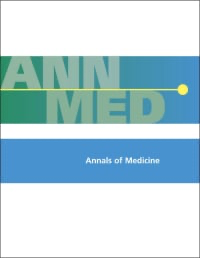
Systematic Review
The existing evidence, although with low level of confidence, suggests that walnut intake may have a beneficial effect on cognition-related outcomes, including cognitive function, mood, and stroke.
Cahoon, D., Shertukde, S. P., Avendano, E. E., Tanprasertsuk, J., Scott, T. M., Johnson, E. J., Chung, M., & Nirmala, N.

Review Article
Tian Ma, a traditional Chinese medicine, shows promise as a complementary therapy for aging-related diseases, including Alzheimer's and cerebrocardiovascular diseases.
Heese K
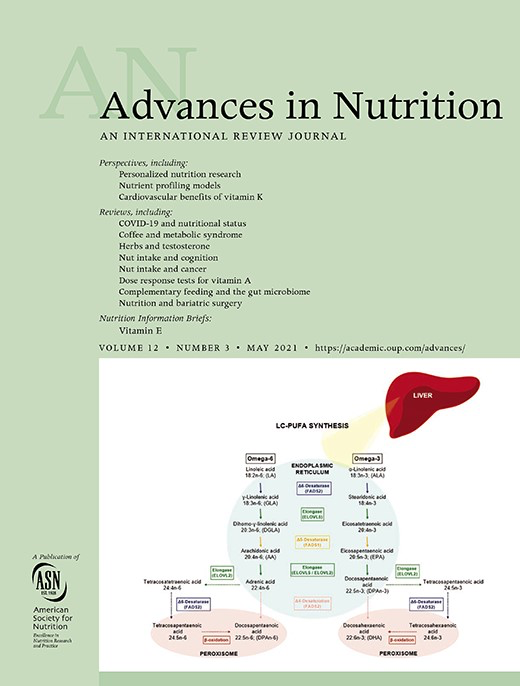
Systematic Review
Regular walnut consumption is consistently linked to improved cognitive performance in adults, particularly those at higher risk of cognitive decline.
Lauren E Theodore, Nicole J Kellow, Emily A McNeil, Evangeline O Close, Eliza G Coad, Barbara R Cardoso,
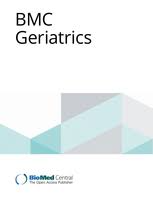
Cohort Study
Habitual and high-frequency tea consumption, particularly green tea, is associated with a reduced prevalence of cognitive impairment in middle-aged and older individuals.
Zhang J, Wang A, Zhang X, Chen S, Wu S, Zhao X, Zhang Q

Randomised Controlled Trial
Daily consumption of decaffeinated green tea catechins may enhance working memory.
Baba Y, Inagaki S, Nakagawa S, Kaneko T, Kobayashi M, Takihara T
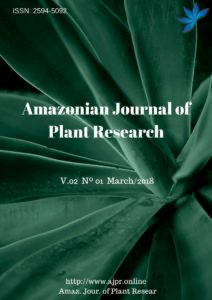
Systematic Review
The most important tremella mushroom benefits are anti-aging, anti-inflammatory, lower cholesterol, combat obesity, protect nerves and may fight cancer.
Mohamad Hesam Shahrajabian, Wenli Sun, Hong Shen and Qi Cheng

Systematic Review
The study shows the promising potential of Suan Zao Ren as a multi-effect traditional Chinese medicine derived from the seeds of Ziziphus Jujuba.
Su-Rong He, Chong-Bo Zhao, Jing-Xia Zhang, Jing Wang, Bo Wu, Chun-Jie Wu,

Systematic Review
Blueberries and their products may improve certain measures of cognitive performance, particularly memory, and positively affect mood.
Travica N, D'Cunha NM, Naumovski N, Kent K, Mellor DD, Firth J, Georgousopoulou EN, Dean OM, Loughman A, Jacka F, Marx W
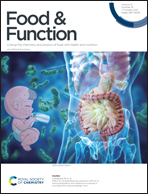
Randomised Controlled Trial
Daily consumption of tart cherry juice may enhance cognitive abilities in older adults, likely due to reduction of hypertension, inflammation, and oxidative stress.
Chai SC, Jerusik J, Davis K, Wright RS, Zhang Z

The consumption of epicatechin, plentiful in foods like cocoa, positively influences memory, executive function, and processing speed, particularly in older adults.
Haskell-Ramsay C, Schmitt J, Actis-Goretta L
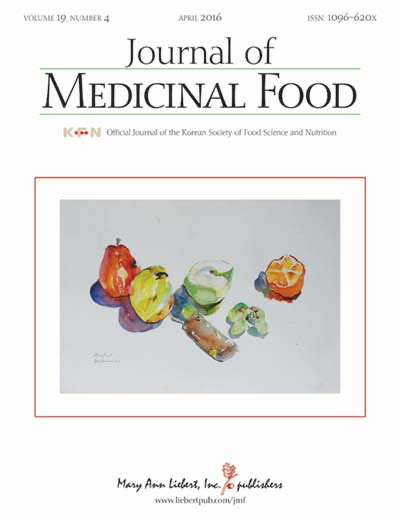
Randomised Controlled Trial
Tremella fuciformis, as a nutritional supplement, safely improved subjective memory complaints and cognitive functions in individuals suffering from subjective cognitive impairment.
Ban S, Lee SL, Jeong HS, Lim SM, Park S, Hong YS, Kim JE

Systematic Review
Green tea consumption was shown to reduce psychopathological symptoms like anxiety and was also shown to effect cognition, with noted benefits for memory and attention. Green tea was also linked with the activation of working memory as seen in functional MRI.
Mancini E, Beglinger C, Drewe J, Zanchi D, Lang UE, Borgwardt S

Review Article
Jujube possesses neuroprotective activities, including protecting neuronal cells against neurotoxin stress, stimulating neuronal differentiation, increasing expression of neurotrophic factors, and promoting memory and learning.
Chen J, Liu X, Li Z, et al.

Experimental Study
Honey, specifically its polyphenols, show promising signs of enhancing memory and counteracting neurodegenerative diseases by reducing oxidative stress and neuroinflammation.
Mijanur Rahman M, Gan SH, Khalil MI

Experimental Study
Pomegranate juice can enhance memory function and brain activity in tasks related to verbal and visual memory in older adults experiencing memory problems.
Bookheimer SY, Renner BA, Ekstrom A, Li Z, Henning SM, Brown JA, Jones M, Moody T, Small GW
Executive Summary
Write an executive summary in the form of a blog article on the topic of "Research into Chinese medicine treatment for Memory" summarising the research below and using language that can be easily understood by patients and avoiding medical jargon using a professional and caring tone of voice.
Write an executive summary in the form of a blog article on the topic of "Researched Chinese medicine treatments for Memory" summarising the research below in an objective and easy to understand way, and using language that can be easily understood by patients. Group the article into Chinese medicine treatments first, followed by nutrition and other treatments. Avoid using medical jargon and use a professional and caring tone of voice.
Write me a concise but easy to understand executive summary on the topic of "Chinese medicine treatments for Memory" based on the following research that I will give you. Your summary should be 2 paragraphs long in Australian English spelling and include references to the studies.
A Experimental Study published in 2023 in the journal Frontiers in Nutrition found that A combination of Walnut Peptide and Casein Peptide substantially alleviates anxiety disorder symptoms and enhances memory by improving neurotransmitter function in mice. The study investigated the effects of the combination of Walnut Peptide (WP) and Casein Peptide (CP) in mice exhibiting elevated anxiety levels by giving them these peptides through oral gavage administration. The researchers designed assessments to carefully examine changes in the subjects' anxiety and memory-related behaviors following this treatment. Besides monitoring behavior, they also scrutinized the levels of several neurotransmitters, such as Serotonin, gamma-aminobutyric acid, dopamine, and acetylcholine, to identify the biological mechanisms underlying the observed effects. The mice treated with the WP + CP combination demonstrated significant improvement in behavioral tests related to anxiety and memory. The analysis also showed that the peptide combination resulted in restoring neurotransmitter dysfunction observed while examining neurotransmitter levels. The peptides had the additional effect of increasing the expression of brain-derived neurotrophic factor mRNA, suggesting a protective role against the neurological effects of anxiety. The research revealed strong correlations between the improvement in behavioral indicators, increased brain-derived neurotrophic factor, and neurotransmitter levels. The study concluded that the WP+CP combination might serve as an effective alternative therapy for anxiety disorders, implying potential usefulness as dietary supplements or inclusions in common foods.
A Randomised Controlled Trial published in 2023 in the journal Nutrients found that A beverage formula containing fish roe, snow fungus, and yeast enhances cognitive function by improving memory, response times, and emotional recognition, while reducing anxiety and fatigue. In the study, 64 volunteers were divided into two equal groups, with one group consuming a placebo and the other consuming the formula beverage for a duration of 8 weeks. Cognitive testing was performed initially and at two follow-up points, weeks 4 and 8. Variables tested included memory recall, identification of objects over time, response times, emotional recognition from facial expressions and self-reported anxiety and fatigue levels. The results demonstrated that by weeks 4 and 8, those who consumed the formula beverage showed notable advancements in cognitive functions. These individuals were able to remember objects better and had quicker response times. Notably, they also registered a significant improvement in recognizing happy faces and displayed reduced anxiety and fatigue. Overall, the beverage holds promise as an intervention tool for cognitive improvement in individuals reporting subjective cognitive issues.
A Animal Study published in 2023 in the journal Behavioural Neurology found that Pumpkin seeds have been shown to provide neuropharmacological benefits such as reducing anxiety and depression, and improving memory. The study evaluated the effects of pumpkin seeds on four areas - anxiety, depression, memory, and motor coordination. Anxiety was tested using models like light and dark apparatus, elevated plus maze, head dip, and open field test, while depression was assessed by the forced swim test and tail suspension test. Memory and learning abilities were gauged through the passive avoidance test, stationary rod apparatus, and Morris's water maze test. The effect on motor skilled learning was assessed by stationary rod and rotarod apparatus. Finally, the levels of brain biogenic amines were determined using reversed phase high-pressure liquid chromatography. In the results evaluation, it was found that pumpkin seeds exhibit properties that help reduce anxiety and alleviate depression, while also enhancing memory. However, they showed no significant effects on motor coordination. An elevated level of norepinephrine was observed, possibly contributing to its antidepressant effects. Furthermore, a reduction in the weight of the animal was observed after chronic administration. These benefits are probably due to the seeds' secondary metabolites like cucurbitacin, beta-sitosterol, polyphenolic compounds, citrulline, kaempferol, arginine, beta-carotene, quercetin, and other antioxidants.
A Review Article published in 2023 in the journal Frontiers in Aging Neuroscience found that Honey exhibits multifaceted benefits for brain health, acting as a memory booster, neuroprotective agent, anti-stress, and anti-nociceptive substance, fostering potential therapeutic applications to enhance overall cognitive well-being. This review scrutinizes 34 original articles exploring the impact of honey on brain health. Honey, traditionally known as a natural sweetener, emerges as a versatile substance with applications in nutrition, health supplementation, and brain health enhancement. The analysis identifies four key benefits: memory enhancement, neuroprotection, stress reduction, and pain alleviation. The review emphasizes the growing interest in understanding the mechanisms that underlie these effects, paving the way for potential therapeutic roles of honey in promoting cognitive well-being. The literature review underscores the significant role of honey in brain health research, shedding light on its diverse benefits, including memory improvement, neuroprotection, stress mitigation, and pain relief. The emphasis on unraveling the underlying mechanisms reflects a broader interest in establishing honey's therapeutic potential for enhancing overall brain health. This comprehensive exploration of honey's effects on cognition opens avenues for developing novel therapeutic strategies harnessing honey's natural properties.
A Review Article published in 2022 in the journal Nutrients found that Walnuts, rich in anti-inflammatory ingredients, potentially regulate neuroinflammation, improve cognitive function, reduce oxidative stress, and maintain gut health, thereby suggesting their use against neurodegenerative diseases. The methodology of the research includes a comprehensive review of the existing studies and experiments on walnuts and their active ingredients. These ingredients include large amounts of unsaturated fatty acids, peptides, and phenolic compounds known for their anti-inflammatory effects. Various studies covering the effect of these ingredients on the brain health of both rats and humans were analyzed. Specifically, the regulation of microglia activation induced by substances like amyloid β or lipopolysaccharides, the inhibition of peripheral inflammation led by macrophages, and the effects on oxidative stress and gut microbes were scrutinized. In the discussion of results, the studies presented compelling evidence of the beneficial effects of walnuts and their components on neuroinflammation and potential ways to counteract neurodegeneration. There seems to be a consensus in the experimental investigations that the walnut’s active ingredients can reduce inflammation and oxidative stress while maintaining gut homeostasis. They also show promise in improving cognitive functions and memory in both rats and humans. However, it was noted that the evidence from human clinical studies is not as abundant or conclusive as the experimental work, although the potential of walnut-based functional foods in mitigating neurodegenerative diseases was recognized.
A Review Article published in 2022 in the journal Journal of Agricultural and Food Chemistry found that Jujube nutrients may offer potential therapeutic benefits including antioxidant, antibacterial, anti-inflammatory functions, and improving sleep quality and learning. The methodology used for this study involves a comprehensive review of existing research about Wild jujube, giving particular focus on its phytonutrients, biological functions, metabolism of bioactive compounds, and applications. The study does not seem to detail a specific experimental procedure, but instead bases its conclusions on existing literature. Various parts of the wild jujube plant, such as the fruits, seeds and leaves, were examined for their potential role as food, medicine, or health care aids. The results from the review suggest that the different parts of the wild jujube plant play many roles. The fruits have been noted for their antioxidant, antibacterial, and anti-inflammatory properties, and as ingredients preventing aging. The mature seeds have been found to have potential beneficial effects on central nervous system diseases, particularly in the treatment of insomnia and the enhancement of learning and memory.
A Randomised Controlled Trial published in 2022 in the journal Natural Product Communications found that Walnut oligopeptide improves cognitive performance and sleep quality among teenagers and elderly people. In this randomized double-blind placebo-controlled clinical trial, 36 individuals (comprised of teenagers and elderly people) were divided into groups and given either a placebo or walnut oligopeptide (WO) at low or high dosages. The division was random and the dosage groups were composed of 6 individuals from each population group (teenagers and elderly). The administration of either substance was over a period of 90 days. The results showed notable improvements in subjects who were administered WO. Test scores on the Wechsler Adult Intelligence Scale (WAIS) showed a significant increase, indicating an improvement in cognitive ability. In addition, there was a decrease in the scores on the global Pittsburgh Sleep Quality Index (PSQI), suggesting an improvement in the quality of sleep among the subjects. Furthermore, average scores in Chinese, Mathematics, and English were significantly improved from the baseline scores among the teenagers in the WO administered group. Thus, these findings support the potential use of WO in nutritional intervention to boost memory, cognitive ability, and sleep quality in teenagers and elderly people.
A Systematic Review published in 2021 in the journal Annals of Medicine found that The existing evidence, although with low level of confidence, suggests that walnut intake may have a beneficial effect on cognition-related outcomes, including cognitive function, mood, and stroke. The existing evidence, although with low level of confidence, suggests that walnut intake may have a beneficial effect on cognition-related outcomes, including cognitive function, mood, and stroke. Limitations in study design and comparability render the available evidence insufficient to draw a firm conclusion regarding the effects of walnut on cognition in adults. High quality studies and standardized interventions and measurement tools are necessary to determine the role of walnut intake in cognitive health.
A Review Article published in 2020 in the journal Evidence-Based Complementary and Alternative Medicine found that Tian Ma, a traditional Chinese medicine, shows promise as a complementary therapy for aging-related diseases, including Alzheimer's and cerebrocardiovascular diseases. This study utilized previous research to methodically analyze the efficacy and safety of Tian Ma in treating aging-related diseases. Investigations spanned across various well-structured disease models, with particularly close attention paid to Alzheimer's Disease. The study trialed not just on its raw form, but also explored how it performs within different herbal preparations and as pure natural extracts. The study's findings indicate that Tian Ma might present a viable alternative treatment for aging-related cerebrocardiovascular diseases and dementia. Specifically, its promising attributes were most noticeable in the context of complementary therapy for Alzheimer's Disease. The potential effectiveness of Tian Ma seems to be maintained across the various preparations, whether in herbal mixtures or as a pure natural product. The study thus concludes on a hopeful note regarding the use of Tian Ma in combatting debilitating age-linked conditions.
A Systematic Review published in 2020 in the journal Advances in Nutrition found that Regular walnut consumption is consistently linked to improved cognitive performance in adults, particularly those at higher risk of cognitive decline. The methodology of this review involved a systematic search of four different databases - Ovid MEDLINE, Scopus, CINAHL Plus, and Embase, from their inception through to April 2020. The search aimed to identify both interventional and observational studies that investigated the effect of nut intake on cognitive outcomes in adults aged 18 and above. The specific nuts studied included almonds, hazelnuts, macadamias, pistachios, walnuts, pecans, pine nuts, Brazil nuts, cashews, and peanuts. The review then selected the most relevant studies for further analysis; out of 2,374 identified articles, 22 met the criteria, with a combined participant count of 43,793. The resulting discussion of this review's findings highlighted that, despite inconsistencies due to varying study designs and types of nuts studied, regular mixed nut intake could potentially protect cognitive function in different age groups. However, more notable was the recurrent evidence found in studies focusing on groups at a higher risk of cognitive impairment, which repeatedly reported improved outcomes. Particularly, studies specifically targeting walnut consumption consistently found it positively associated with enhanced cognitive performance. The review found homogeneous results within these walnut-centred studies, with only one out of six, including two randomized controlled trials, not reporting a positive association.
A Cohort Study published in 2020 in the journal BMC Geriatrics found that Habitual and high-frequency tea consumption, particularly green tea, is associated with a reduced prevalence of cognitive impairment in middle-aged and older individuals. The methodology of the study drew upon data from the Asymptomatic Polyvascular Abnormalities in Community study involving individuals over 40. Through a standardized questionnaire, information regarding participants' tea consumption habits – including frequency and type of tea – was collected. Cognitive function was then evaluated utilizing two recognized tests: Mini-Mental State Examination (MMSE) and Montreal Cognitive Assessment (MoCA). Two distinct participant groups were chosen for these assessments: MMSE and MoCA subgroups. The researchers found, after accounting for potential confounding factors, that usual and high frequency tea intake correlated with a decreased risk of cognitive impairment. Further analysis showed that this risk reduction was notably high for green tea drinkers than for consumers of other tea types, as indicated by the MMSE test. A similar pattern was observed in the results of the MoCA group, showing a consistent association between regular tea intake, especially green, and lower prevalence of mental decline.
A Randomised Controlled Trial published in 2020 in the journal Molecules found that Daily consumption of decaffeinated green tea catechins may enhance working memory. The study incorporated a double-blind, randomized, controlled approach to determine the effects of 336.4 mg of decaffeinated green tea catechins on cognitive function. It targeted Japanese adults, aged 50 to 69 years, exhibiting a Mini-Mental State Examination Japanese version score of over 24 and who self-identified as having cognitive decline. The experiment comprised administering a substance and then examining the cognitive function post a single dosage as well as following 12 weeks of everyday consumption. The Cognitrax testing battery was utilized to assess cognitive function. In the results, it was observed that the incorrect response rate on the Continuous Performance Test significantly fell after a single dosage of green tea catechins. After 12 weeks of regular intake, the response duration for the two-back test in Part 4 of the 4-part Continuous Performance Test reduced, indicating potential improvement in working memory. The data suggests that consuming green tea catechins daily may potentially lead to cognitive enhancements, particularly in working memory.
A Systematic Review published in 2020 in the journal Amazonian Journal of Plant Research found that The most important tremella mushroom benefits are anti-aging, anti-inflammatory, lower cholesterol, combat obesity, protect nerves and may fight cancer. The most powerful nutritional constituents of Tremella are amino acids, vitamins, minerals, polysaccharides, Glucurmomannan 1,3-alpha-glucan, Epitope 9beta-D- glucuronosyl), Glucuronic acid, Glucurmic acid, Glucuronoxylomannan, N-acetylglucosamine, Flavonoids, Polyphenols, Alkaloids and Organic acids. Functional foods are making inroads into Chinese diets with their promises to improve health and nutrition. Chinese consumers should choose nutritional and healthy food to maintain general health and reduce the risk of health problems. Nutrition therapy on the basis of traditional Chinese medicine such tremella is quite effective at treating common diseases.
A Systematic Review published in 2020 in the journal Evidence-Based Complementary and Alternative Medicine found that The study shows the promising potential of Suan Zao Ren as a multi-effect traditional Chinese medicine derived from the seeds of Ziziphus Jujuba. The methodology of the research was primarily a comprehensive literature review of Ziziphi Spinosae Semen (aka Suan Zao Ren). The team explored the botanical characteristics, traditional uses, pharmacology, and discovered compounds in the seeds of Ziziphus Jujuba. In regards to the results of the review, more than 150 compounds were identified in Ziziphi Spinosae Semen. These compounds, which mainly include terpenoids, flavonoids and others, show various biological activities. It was found that the seeds are particularly prominent in having sedative and hypnotic effects. Other properties discovered include antitumor potential, improvement to learning and memory, anti-inflammatory, antioxidative, anti-aging, alongside lower blood pressure and lipid levels. Traditional usage of the seeds for the treatment of insomnia, forgetfulness, headaches and dizziness were confirmed by the review.
A Systematic Review published in 2020 in the journal Brain, Behavior, and Immunity found that Blueberries and their products may improve certain measures of cognitive performance, particularly memory, and positively affect mood. The systematic review process involved evaluating the results from randomized controlled trials that investigated the effects of blueberries and blueberry products on cognitive performance and mood. A total of eleven articles, encompassing twelve studies, were examined. The studies employed various forms of blueberries - freeze-dried, whole, and concentrate. Different demographic groups were considered across the studies: children, young adults, and older people with or without known cognitive impairment. The studies considered the impact of consumed or supplemented blueberries, varied in dosage and duration, on cognitive performance, specifically in relation to both short-term and long-term memory, as well as spatial memory. Also, the studies investigated the effects on mood, particularly the potential enhancement of positive feelings. The findings revealed that eight out of twelve studies reported an improvement in cognitive performance following the ingestion of blueberries, although variations in each specific study's design, dosage, and anthocyanin content made cross-study comparisons challenging. Regarding mood, out of five studies, only one study reported a significant improvement in mood upon consumption of blueberry products, while the others reported no significant change. Despite differences, all studies featured a low risk of bias overall, underscoring the perceived validity of these findings.
A Randomised Controlled Trial published in 2019 in the journal Food & Function found that Daily consumption of tart cherry juice may enhance cognitive abilities in older adults, likely due to reduction of hypertension, inflammation, and oxidative stress. In this randomized controlled trial, 37 adults aged between 65 and 80 years with normal cognitive function were assigned to consume two cups of Montmorency tart cherry juice daily for a duration of 12 weeks. Participants' subjective memory and objective cognitive performance were evaluated at the starting point and after the 12-week juice supplementation using a validated memory questionnaire and a standard assortment of tests designed for cognitive assessment. Factors such as daily caloric intake and physical activity levels were also monitored during the study. After the 12-week intervention, participants who consumed tart cherry juice showed an improvement in their contentment with memory scores, demonstrated decreased scores of movement time, and performed better on a task of paired associates learning when compared to the control group. Notably, the results revealed that the tart cherry juice group demonstrated improvements on measures of visual sustained attention and spatial working memory relative to their own baseline values. These findings suggest that the potential benefits of tart cherry juice to cognitive abilities might be attributed to the juice's antioxidant and anti-inflammatory properties, and its capacity to reduce blood pressure.
A published in 2018 in the journal Nutrients found that The consumption of epicatechin, plentiful in foods like cocoa, positively influences memory, executive function, and processing speed, particularly in older adults. Methodology: The research design for this paper was anchored on the use of intervention studies. These are intensive studies purposed to test breakthrough methodologies or practices on a select group of participants. In this case, the intervention was the ingestion of epicatechin, a compound found largely in cocoa. The subjects monitored were mostly from a more mature demographic, aged 50 years and above. The studies selected for review were those that lasted a minimum of 28 days to ensure an adequate examination period and only those which had a daily epicatechin dose exceeding 50 mg. Discussion of Results: The paper notes an appreciable improvement in the cognitive performance in those subjects who consumed diets high in epicatechin. More specifically, there was an enhancement in memory, executive function, and processing speed. Trends showed that these benefits were more conspicuous in studies which offered more than 50 mg of epicatechin daily, and ran for at least 28 days. The results were particularly noteworthy in the elderly population, where all participants showed cognitive improvement. The impact of epicatechin on cerebral blood flow, however, could not be definitively proved and the results suggest its role requires further exploration. Additionally, the synergistic effects of epicatechin with other dietary elements also complicated the ability to attribute the cognitive improvement to this compound alone.
A Randomised Controlled Trial published in 2018 in the journal Journal of Medicinal Food found that Tremella fuciformis, as a nutritional supplement, safely improved subjective memory complaints and cognitive functions in individuals suffering from subjective cognitive impairment. Seventy-five individuals with subjective cognitive impairment were included in an 8-week, double-blind, randomized, placebo-controlled trial. Participants received either Tremella fuciformis (300mg/day or 600mg/day) or a placebo. The key point of assessment was fluctuations in questionnaire scores evaluating subjective memory complaints. Secondary measures involved changes in short-term memory and executive function performances, assessed using standardized cognitive tests. Effects on grey matter volume were examined using voxel-based morphometry. The Tremella fuciformis group showed significant improvements in total questionnaire scores related to subjective memory complaints compared to the placebo group. Alongside this, substantial improvements were recorded in short-term memory and executive functions within the same group. Factors such as left precuneus, right supramarginal gyrus, right middle frontal gyrus, and right postcentral gyrus revealed significant group-to-visit interactions with no notable increase in adverse events among both high dose and low dose Tremella fuciformis groups, and the placebo group. These findings emphasize the potential of Tremella fuciformis as a safe nutritional supplement to alleviate subjective memory complaints and boost cognitive functions in individuals with subjective cognitive impairment.
A Systematic Review published in 2017 in the journal Phytomedicine found that Green tea consumption was shown to reduce psychopathological symptoms like anxiety and was also shown to effect cognition, with noted benefits for memory and attention. Green tea was also linked with the activation of working memory as seen in functional MRI. The effects of green tea cannot be attributed to a single constituent of the beverage. This is exemplified in the finding that beneficial green tea effects on cognition are observed under the combined influence of both caffeine and l-theanine, whereas separate administration of either substance was found to have a lesser impact.
A Review Article published in 2017 in the journal Evidence-Based Complementary and Alternative Medicine found that Jujube possesses neuroprotective activities, including protecting neuronal cells against neurotoxin stress, stimulating neuronal differentiation, increasing expression of neurotrophic factors, and promoting memory and learning. Jujube possesses neuroprotective activities, including protecting neuronal cells against neurotoxin stress, stimulating neuronal differentiation, increasing expression of neurotrophic factors, and promoting memory and learning. Flavonoid, cAMP, and jujuboside could be the potential bioactive ingredients to account for the aforesaid biological activities. These findings imply that jujube is a potential candidate for development of health supplements for prevention and/or treatment of neurological diseases.
A Experimental Study published in 2014 in the journal Evidence-Based Complementary and Alternative Medicine found that Honey, specifically its polyphenols, show promising signs of enhancing memory and counteracting neurodegenerative diseases by reducing oxidative stress and neuroinflammation. The research focuses on the analysis of the nootropic and neuropharmacological benefits of honey, with particular emphasis on its polyphenol constituents. Essentially, honey's nutritional and physiological effects on memory enhancement and various neurological activities have been examined. This study delves into the mechanistic approach in which honey, as a natural compound, can mitigate oxidative stress while enhancing the cellular antioxidant defense system - a cue to its potential role in neutralizing reactive oxygen species that have harmful effects on neurological health. The findings from the research suggest that honey and its polyphenols play a noteworthy role in neuronal health. They display a potential ability to improve memory deficits and other neurodegenerative diseases. In particular, honey polyphenols have been associated with apoptosis activities and the reduction of microglia-induced neuroinflammation. Furthermore, the direct involvement of these polyphenols in synaptic plasticity was found, which could have a substantial effect on the behavior-modulating neural circuitry. Overall, these findings indicate the possible therapeutic value of honey and its polyphenols on the health of the neurological system.
A Experimental Study published in 2013 in the journal Evidence-Based Complementary and Alternative Medicine found that Pomegranate juice can enhance memory function and brain activity in tasks related to verbal and visual memory in older adults experiencing memory problems. The study was a preliminary, placebo-controlled, randomized trial involving 32 older participants with memory complaints. They were randomly tasked to consume 8 ounces of either pomegranate juice or a placebo drink that had a similar flavor daily for a duration of 4 weeks. Before and after the study duration, the subjects underwent memory tests and functional MRI scans while involved in cognitive tasks. Additionally, blood samples were extracted to ascertain peripheral biomarkers. The test subjects and investigators were oblivious to the groupings to ensure objectivity. The results from the study pointed out that the group that had pomegranate juice had notable improvements in their verbal memory as determined by the Buschke selective reminding test and also a rise in their antioxidant capacity. This group also recorded increased fMRI activity during tasks related to verbal and visual memory in comparison to the placebo group. This may suggest that consumption of pomegranate juice may boost memory function by elevating functional brain activity during tasks.
Moderation Tools
Topic
Sign In
Users not signed in are limited to viewing the 5 most recent items of content.